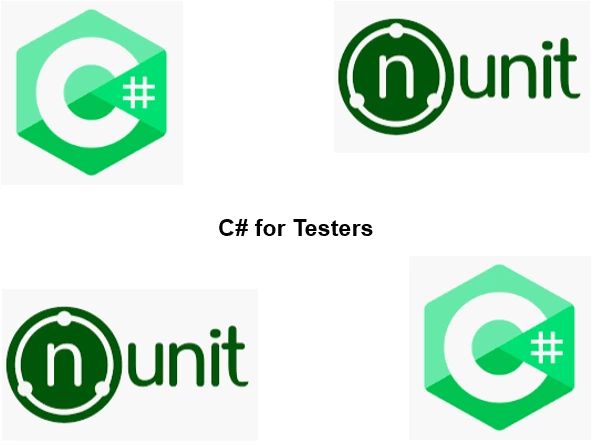-
Learning by doing
-
Trainers with practical experience
-
Classroom training
-
Detailed course material
-
Clear content description
-
Tailormade content possible
-
Training that proceeds
-
Small groups
The course C# for Testers discusses the basic syntax of the C# programming language and how to use C# when writing NUnit tests and implementing SpecFlow scenarios. C# is the most often used language in the dotNET Framework and is very similar to Java. NUnit and SpecFlow are frequently used libraries in test automation.
The course starts with a discussion of the .NET environment in which C# code runs. The .NET Framework class library and NuGet for managing dependencies in .NET are discussed here.
Next attention is paid to the various data types in C# such as value types and reference types. Also covered are flow control constructs, calling methods and passing parameters.
Object oriented programming in C# with classes and objects, constructors, private and public data is also treated. The concepts inheritance, polymorphism and interfaces are explained. And the data structure classes of the collection framework are discussed as well.
Handling errors by means of the exception handling mechanism is part of the course program. Common exceptions such as the null reference exception and their causes are covered.
Also on the program of the course is the setting up NUnit tests, the structure of NUnit tests, the annotations and assert statements used, the execution of NUnit tests in a Visual Studio environment and reporting on the results of the tests.
Finally the course C# for Testers covers the SpecFlow Framework with the Gherkin mini language. Attention is paid to Feature files, Step definitions and the integration with NUnit. The course C# for Testers is a good basis to participate in the course Web Testing with Selenium.
The course C# for Testers is intended for experienced testers who want to learn how to use C#, NUnit and SpecFlow when writing test scripts.
Knowledge of and experience with testing is required to participate in this course. Experience with programming is beneficial for understanding but not required.
The course C# for Testers has a hands-on character. The theory is treated on the basis of presentation slides and is interchanged with practical exercises. The course material is in English. Course times are from 9.30 up and to 16.30.
After successful completion of the training the participants receive an official certificate C# for Testers.

Module 1 : Intro C# |
Module 2 : Language Syntax |
Module 3 : Classes and Objects |
| .NET Overview Common Language Runtime C# Language Managed Code C# Compilation Visual Studio IDE Assemblies Namespaces Common Type System .NET Core .NET Class Library Dependency Management NuGet |
C# Data Types Variables and Scope Value Types Reference Types Operators Flow Control if and else Statements switch Statement for and while Loops break and continue Strings and Arrays Methods Parameter Passing |
Class Definition Encapsulation Access Modifiers Constructors Creating Objects Fields and Properties Special Properties static Modifier Overloading Constants Inheritance Polymorphism Interfaces |
Module 4 : Exception Handling |
Module 5 : Collections |
Module 6 : NUnit and SpecFlow |
| Error Conditions Exceptions in C# Exception Handling Syntax Exception Flow Exceptions Template Exceptions Object finally Clause Common Exceptions Throwing Exceptions User Defined Exceptions Catching User Exceptions |
Properties of Collections Parameterized Types Compile Time Safety Using Generics Predefined Collections Array and List Class Queue and Stack Class Linked List Sorted List Dictionary Hashtable |
NUnit Integration Assert Statements Fixtures Annotations Parameterized Tests Acceptance Testing SpecFlow Scenario's Feature Files Gherkin Keywords Given When Test Automation |
